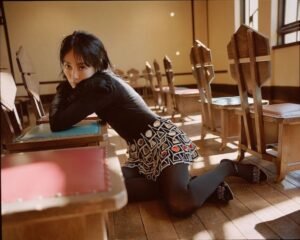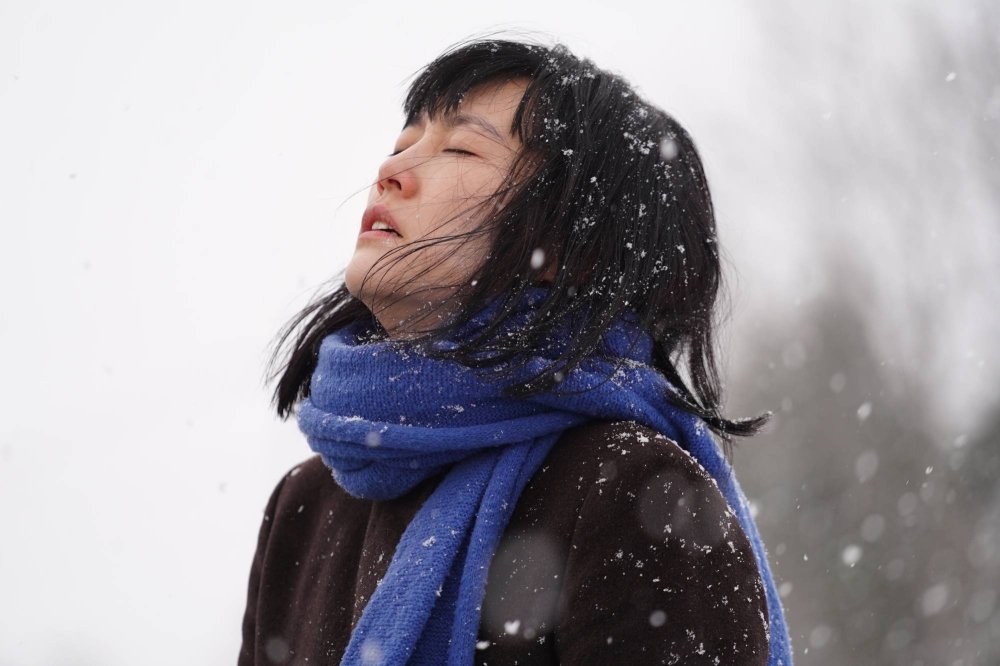Rinko Kikuchi: Breaking Boundaries in International Film
Rinko Kikuchi is a trailblazing Japanese actress who has made a significant impact on both Japanese and international cinema. Born in 1981, Kikuchi rose to global prominence through her powerful performances, marked by her ability to convey deep emotion and complexity. She is one of the few Japanese actresses to break into Hollywood successfully, challenging stereotypes and redefining Asian representation in film. This article explores Rinko Kikuchi’s journey, her contributions to international cinema, and her role in breaking boundaries for Asian actors in the global film industry.

Early Career and Breakthrough
Rinko Kikuchi began her acting career in Japan in the late 1990s, taking on roles in a variety of television dramas and independent films. Her early work in Japanese cinema showcased her versatility as an actress and laid the groundwork for her future success. Kikuchi’s breakthrough came with the critically acclaimed film Babel (2006), directed by Alejandro González Iñárritu. In the film, she portrayed a deaf-mute teenager grappling with grief and isolation—a role that required her to communicate without dialogue, relying solely on her expressive physicality and emotional depth.
Moreover, Kikuchi’s performance in Babel earned her an Academy Award nomination for Best Supporting Actress, making her the first Japanese actress to be nominated in that category in 50 years. This nomination marked a significant milestone in her career, bringing her recognition on the international stage and opening doors to new opportunities in global cinema.
Breaking Stereotypes and Defying Expectations
Rinko Kikuchi’s roles often defy traditional stereotypes of Asian women in Hollywood. Instead of being typecast in typical roles, she has chosen to portray complex, multidimensional characters that reflect a broader range of human experience. For instance, in Pacific Rim (2013), she played Mako Mori, a skilled pilot and a resilient character who challenges gender norms and becomes a fan favorite for her strength and vulnerability.
Additionally, Kikuchi’s work in films such as The Brothers Bloom (2008) and Kumiko, the Treasure Hunter (2014) further showcases her ability to take on diverse roles that push boundaries. These performances highlight her commitment to selecting projects that resonate with her as an artist, rather than conforming to conventional expectations. Her dedication to portraying complex characters has helped pave the way for greater diversity and representation of Asian actors in Hollywood.
Impact on International Cinema
Rinko Kikuchi’s success in both Japanese and international cinema has had a profound impact on the film industry. She has played a vital role in bridging the gap between Eastern and Western cinema, bringing Japanese artistry and storytelling to a global audience. Her ability to work seamlessly across languages and cultures demonstrates her versatility and adaptability as an actress.
Furthermore, Kikuchi’s influence extends beyond her acting. She has become a symbol of breaking barriers for Asian actors in Hollywood, challenging the industry’s norms and advocating for more diverse narratives. Her success has inspired a new generation of Asian actors to pursue careers in international cinema and has contributed to the broader movement for representation and inclusivity in film.
Recognition and Awards
Throughout her career, Rinko Kikuchi has garnered numerous accolades for her performances. In addition to her Oscar nomination for Babel, she has received recognition from major film festivals and award bodies worldwide, including the Gotham Awards, National Board of Review, and the Screen Actors Guild Awards. Her recognition by these prestigious institutions underscores her talent and the impact of her work on a global scale.
Moreover, Kikuchi’s achievements have not only elevated her status as a leading actress but have also highlighted the importance of diverse storytelling in cinema. Her ability to bring authenticity and emotional depth to her roles has made her a respected figure in the industry.
Continued Influence and Future Projects
Rinko Kikuchi continues to push boundaries in her career, exploring new genres and challenging herself with diverse roles. She has appeared in both arthouse films and major Hollywood blockbusters, reflecting her range and willingness to take on unique and challenging projects. Kikuchi’s involvement in international co-productions, such as Westworld and 47 Ronin, further emphasizes her global appeal and versatility.
In addition, her influence in contemporary cinema continues to grow as she advocates for better representation of Asian voices and stories in film. Kikuchi’s dedication to her craft and her ability to transcend cultural and linguistic barriers ensure that she remains a significant figure in the industry.
Conclusion
In summary, Rinko Kikuchi has made a lasting impact on international cinema through her powerful performances, dedication to diverse storytelling, and refusal to be limited by stereotypes. Her journey from Japanese cinema to Hollywood stardom exemplifies her talent, determination, and ability to break boundaries. As a trailblazer for Asian actors, Kikuchi’s work continues to inspire and pave the way for greater representation in the film industry, affirming her status as a groundbreaking figure in contemporary cinema.



